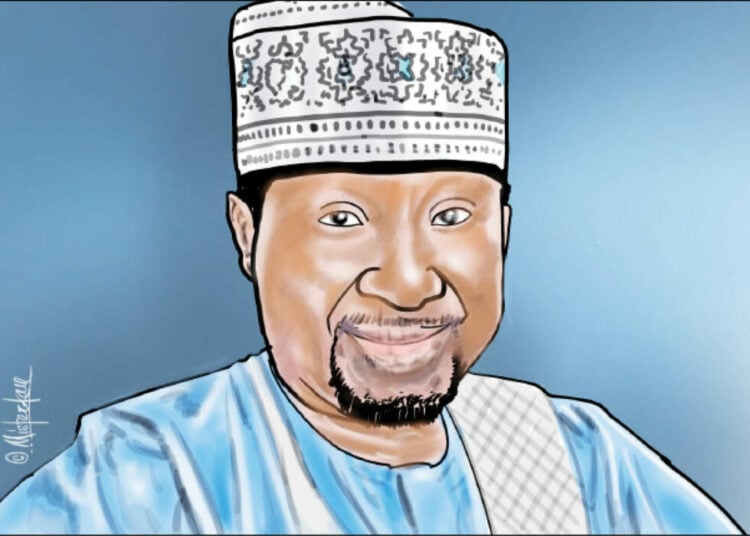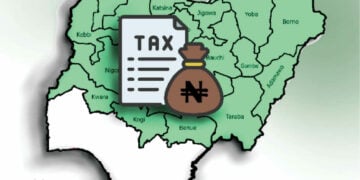As you read this, a team working for the Deputy President of the Nigerian Senate, Barau Jibrin, is identifying 10,000 less privileged individuals in Kano State who will receive N20,000 each. That’s about N200 million.
According to Barau’s media aide, the selection process will begin today with the distribution of forms to potential beneficiaries of the Senator’s cash disbursement through the Barau I. Jibrin Foundation.
But a seasoned lawmaker like Senator Barau should know that cash disbursement interventions are not feasible when the intent is economic empowerment and enhancement of livelihood activities. While they may not be a bad idea in providing immediate relief for disaster victims, they are practically unsustainable if they don’t address the root causes of poverty.
In most cases, such interventions have led to social tensions without achieving tangible results, such as skill acquisition and increased school attendance. They don’t empower beneficiaries because they cannot address systemic issues, which are necessary for sustainable change. More than just largesse, true empowerment requires a comprehensive approach that addresses structural barriers and fosters long-term capacity.
Working for 2027
It is obvious that Barau, who represents Kano North Senatorial District, a position he first won in 2015 and has retained since then, clearly has his eyes set on becoming the next governor of the centre of commerce. It is also clear that this latest round of cash disbursement, like other interventions before it, is part of his design to win the hearts of the millions of Kano voters who will decide the fate of all governorship hopefuls during the 2027 polls.
There is no denying Barau’s qualifications for the job. His ability to galvanise support, not just within the ruling All Progressives Congress (APC) but across the three senatorial districts of the state, makes him stand out despite the alleged no-love-lost relationship between him and former Governor Abdullahi Umar Ganduje.
Politically astute, Barau appears to be doing everything possible to win the confidence of not only his party members but also the larger Kano electorate, including many who are disenchanted with the current administration of the New Nigeria Peoples Party (NNPP) in the state.
I concede that Barau is likely to go down in history as one of the most vibrant Senators from Kano State since the dawn of the Fourth Republic. Having sponsored over 25 bills in the upper chamber since 2024, his legislative record is commendable. But the concern here is not about the number of bills he has sponsored or his suitability for the coveted Kano governorship seat. The issue at stake is that he appears to think poverty can be reduced through periodic cash handouts.
It is baffling that a man aspiring to govern a state like Kano, with over 16 million people, of whom a staggering 62% are multi-dimensionally poor, according to the 2022 report by the National Bureau of Statistics, and about one million children out of school, believes the answer to ending poverty lies in doling out N20,000 to 10,000 people.
Why was it difficult for Barau to channel the N200 million into ventures, social, economic, educational, or health-related, that would create more sustainable impact in a state where over ten million residents, representing 62% of the population, live in multidimensional poverty – a figure well above the national average of 54%?
If deployed towards a well-conceived project focused on scale, sustainability, and local needs, N200 million could genuinely transform the lives of millions. Cash disbursement will not. Nigeria has seen this before. Under the administration of the late former President Muhammadu Buhari, over 619 billion was reportedly disbursed to vulnerable Nigerians between 2016 and 2020 through the National Social Investment Programme (NSIP). Yet, poverty indicators worsened, proving that cash handouts alone cannot reduce poverty.
Reinforcing dependency
While countries such as Brazil and Mexico have achieved measurable success through conditional cash transfers, Nigeria’s version has been anything but successful. Still, many Nigerian leaders remain fixated on this approach despite overwhelming evidence of its ineffectiveness.
Even the recent claim by Minister of Finance Wale Edun that the administration of President Bola Ahmed Tinubu disbursed N330 billion to poor Nigerians was met with public scepticism. This is largely because such programmes are often caught up in allegations of corruption, and the supposed beneficiaries hardly ever receive the funds.
Beyond mismanagement, the fundamental issue is that cash disbursements have never been an effective strategy for lifting populations out of poverty. No country has succeeded through that route. What truly works is retooling the economy to create jobs and provide more opportunities for citizens to work and earn a living.
Barau Jibrin should know this. His planned cash disbursement, like similar government-led efforts, only reinforces a culture of dependency, conditioning the poor to expect handouts instead of empowerment. The money, once received, is quickly spent, leaving recipients as poor as before, if not poorer.
There are far better ways for the Kano-born Senator to spend N200 million and achieve tangible impact. Cash handouts are certainly not one of them. Here are five ways Barau can put that money to better use.
Make better use
Why not establish five to ten information and communication technology (ICT) hubs across the state? With a budget of N15 million or, in the worst-case scenario, N20 million, an ICT and vocational centre can be built, offering free training in digital literacy, tailoring, welding, solar installation, phone repairs, and other essential skills. If properly managed, this initiative could empower hundreds of young people and help them with a source of income that would guarantee they live a fulfilled life. That would be a well-spent N200 million.
Barau knows, as most Kano residents do, that the state is grappling with acute water scarcity. While it may not be his statutory responsibility to provide water, his N200 million would serve the people better if used to deliver water, sanitation, and hygiene (WASH) facilities. With that amount, roughly 400 solar-powered boreholes could be built in rural and semi-urban communities, providing clean water access to two or three million people. That is a visible, measurable impact.
If prudently utilised, the N200 million could moderately equip about ten rural and underserved primary healthcare centres with basic equipment, such as beds, drugs, solar panels, and minimal laboratory facilities. With trained community health workers managing them, thousands of residents would gain convenient access to healthcare.
Alternatively, the funds could be used to procure one or two mobile clinics serving rural communities with free maternal and child care, immunisation, and health education. The reach could be significant.
Kano, with its vast agricultural potential, offers yet another option. The N200 million will have a far greater impact if invested in agriculture, supporting smallholder farmers with essential tools, seedlings, and irrigation systems. We must be driven by actions that empower rather than entrench dependency.





